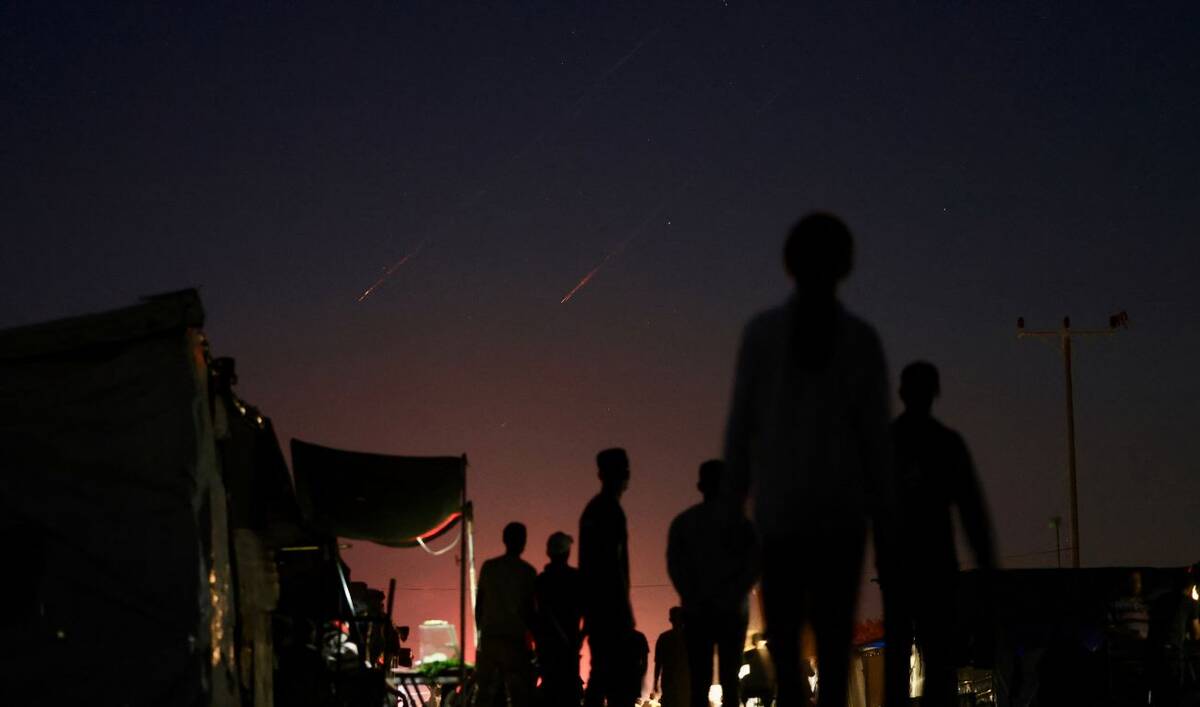ISLAMABAD: Pakistani politicians and analysts have said that the country’s top military commander Asim Munir’s promotion to the field marshal rank, which followed Pakistan’s recent standoff with India, would not further affect the political landscape as he already held “great influence.”
The Pakistani government elevated Army Chief Munir to the rank of field marshal on Tuesday, making him only the second military officer after Ayub Khan to attain the title in the history of the South Asian country.
The promotion came more than a week after Pakistan declared victory in a four-day military conflict with India, which saw the archfoes trade missile, drone and artillery strikes, killing around 70 people on both sides.
The office of the army chief is widely seen as the most powerful position in Pakistan, a country where the military has directly ruled for nearly half its history and wields considerable influence in matters of national significance even during civilian rule.
“It will, God willing, have no [further] impact on political space or Pakistan Tehreek-e-Insaf (PTI),” Sayed Zulfikar Bukhari, a spokesperson of jailed ex-prime minister Imran Khan-led PTI party, told Arab News this week.
“He already held all the influence.”
¬ÝKhan‚Äôs PTI has been at loggerheads with the military since the downfall of its administration in 2022 and on May 9, 2023, hundreds of people carrying its flags had attacked government and military installations over the ex-premier‚Äôs arrest in a graft case. The attacks followed hundreds of arrests and dozens of Khan supporters were even tried in military courts.
The PTI denies it instigated its followers to violence and accuses the military and its political rivals of a nationwide crackdown on its supporters. The Pakistani government and the military deny the accusation.
Bukhari called Munir’s promotion an “internal matter” of the army.
“It’s generally an internal matter for the army as a result of a victory against India,” he said, adding that the entire nation celebrated that victory and ceasefire.
“We hope that with this promotion, an internal ceasefire is also reached.”
For National Assembly Speaker Sardar Ayaz Sadiq, who is also the vice president of the ruling Pakistan Muslim League-Nawaz (PML-N) party, the promotion was not only a recognition of an individual’s capability, but also an acknowledgment of the sacrifices and professional competence of the Pakistani armed forces.
“Field Marshal Munir thwarted the enemy’s nefarious designs with great courage and strategy,” he said, adding the decision of his elevation would further boost the morale of the military and promote national unity.
On Thursday, Pakistan’s top political leadership conferred the baton of field marshal on Army Chief Munir at a ceremony in Islamabad. PM Shehbaz Sharif praised him for his “unflinching courage” and the army for responding with speed and precision to Indian military strikes.
The strikes were triggered by an attack in Indian-administered Kashmir that New Delhi blamed on Pakistan, an allegation denied by Islamabad.
Khyber Pakhtunkhwa Provincial Governor Faisal Karim Kundi, a senior leader of the Pakistan Peoples Party (PPP), maintained the promotion of the army chief was a “merit-based decision” by the government as he fully deserved it.
“This move has no political angle, neither has been done to harm anyone. So, all should appreciate it,” he told Arab News.
Liaqat Baloch, a senior member of the Jamaat-e-Islami party, said it was the government’s prerogative to make such promotions.
“I think now Field Marshal Munir should work for the supremacy of the constitution,” he said, adding it would further elevate his status among people.
Baloch said the move would not have much impact on political parties, including the PTI or any other opposition group.
Political analysts believed the promotion will further strengthen army chief’s commanding position in the power structure of the country.
“Field Marshal Munir now holds a central and commanding position within the power structure, especially in light of the current weakness and disunity among civilian political leaders,” Mushahid Hussain Syed, a seasoned politician and political commentator, told Arab News.
Even before the standoff with India, he said, all major political forces were already convinced of the establishment’s central role in Pakistan’s power dynamics.
“All the mainstream political forces are convinced that the path to Islamabad passes through Rawalpindi [home to army headquarters],” he added.
But Ahmed Bilal Mehboob, president of the Pakistan Institute of Legislative Development and Transparency (PILDAT), said the top military commander’s promotion would not “further shrink political space for the opposition,” including Khan’s party.
“I do not think this promotion would lead to greater influence in the government affairs than he [Asim Munir] already has,” he added.
Defense analyst and author, Ayesha Siddiqa, called the promotion a “political decision” by the ruling PML-N party to “appease” the most powerful individuals within the country.
“It is a political decision because the basis on which this title is given [the standoff with India] was not even an all-out war,” she told Arab News.
“This is possibly a move by the PML-N to ensure that the army chief stays happy and does not consider too seriously any major [rapprochement] vis-a-vis [the jailed former premier] Khan.”



















